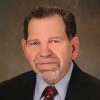
The 2014 SPE Annual Conference and Exhibition (ATCE) was successfully completed in Amsterdam in October. This was the second ATCE held outside of the United States in the organization’s history. The third one is 2 years away in Dubai in 2016. In recent years, SPE has become increasingly global to reflect the worldwide oil industry.
I have been on the SPE Board of Directors for a year and it has been a great ride. Even after many years involved in active volunteer service with SPE, I have been surprised by all that the organization offers. I plan to make this column a regular one to highlight the programs and activities for SPE members in the projects, facilities, and construction (PFC) discipline.
A year ago, decommissioning was identified as a hot topic that required more coverage. As my key focus for the past year, I am pleased that we have built the offerings on decommissioning to include the following:
- Articles were published in the Oil and Gas Facilities and JPT magazines.
- Two special panel sessions were held at this year’s ATCE.
- Two SPE training courses will be offered next year by Brian Twomey of Reverse Engineering Services.
- An upcoming series of workshop is being developed in partnership with Decom North Sea, with Win Thornton of BP and Jim Christie of Marathon chairing the series.
- The Summer Series lectures held by the SPE Gulf Coast Section’s PFC Study Group will address the subject.
We continue to introduce workshops, including “Final Commissioning and Initial Startup,” which is scheduled in February, and “Production Chemistry and Chemical Systems” in March.
We are forming a committee to plan a workshop on control and safeguarding systems, an area in which the industry is not uniformly well served. For example, in layer of protection analyses, a control loop is assumed to fail once in 10 years. That may be true for well-designed, well-tuned loops; however, it is probably untrue for many of our loops, and is certainly untrue for loops operating in manual mode (and I think many are). And I question the wisdom of using increasingly complex safeguarding systems. The workshop is being developed in cooperation with the American Institute of Chemical Engineers in hopes that we can learn from practices in the chemical and refining industries.
Escalating capital costs have been a concern for some time and are becoming more critical with slumping oil prices. SPE will increase its focus on this topic over the next year.
At a recent webinar and luncheon, Neeraj Nandurdikar, director of E&P practice at Independent Project Analysis, spoke about the reasons why projects fail to consistently meet expected profit levels and what could be done to ensure that they do. The event was sponsored by the SPE Gulf Coast Section’s PFC Study Group (see page 33).
We are also forming a committee to develop a workshop on gigaprojects, meaning projects that are so large that they affect their own workspace by stressing global and local supply chains.
It is an exciting time to be a PFC member. Take advantage of these offerings to increase your knowledge and improve your career.
And if you really want to advance your career: volunteer. As an SPE volunteer, you can influence programs and activities with your knowledge and experience, enhance your leadership skills, and meet and work with other members from across the globe.
Working on a committee is one of the best ways to meet and become friends with influential people in the industry around the world. Join a committee and work on any of the topics listed above. Don’t know how to do it? Ask me.

